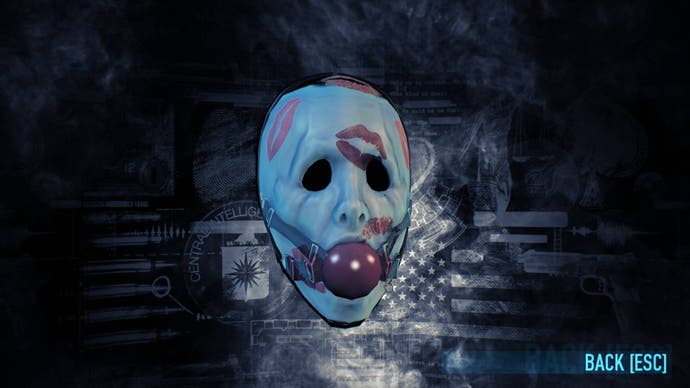Payday 2 developer defends microtransactions
This is not a drill.
PayDay 2 producer Almir Listo has defended his team's decision to add paid microtransactions to the team crime shooter's PC version.

The game's recent Black Market update added random drops of stat-changing loot via virtual safes, which were only crackable with a £1.60/$2.50 drill.
Loot from these safes can then be sold on to other players for real-world cash, or kept by players for themselves.
PayDay 2's community reacted in fury at the change - especially as Listo himself had previously made it clear that microtransactions were not on the cards.
But this was several years ago, Listo has now argued as part of a new Reddit AMA with the game's still-simmering community. Times have changed, and developer Overkill now needs more money to keep the game running. And microtransactions are here to stay.
Six months ago Overkill permanently reduced the price of Payday 2, but the move did not see as many copies sold as the developer had hoped.
"We didn't see the result we anticipated, and have had to think of other ways to make sure we can continue creating content in the pace we want in order to keep PayDay 2 fresh and exciting," Listo revealed.
Additionally, Overkill tripled its PayDay 2 team size after the game grew in popularity and after it signed a partnership with publisher 505 Games.
"We have a partnership with our partner 505 Games, where we have a deal to produce a specific amount of content until 2017. However, we at Overkill want to create more than what we and 505 Games agreed on.
"We want to do everything we can to make PayDay 2 as awesome as possible. In order to do that, we made the decision to triple the size of the crew. To ensure that we can keep the size of the team, we decided that the best approach was to introduce the Black Market update to the game."
Listo did not apologise for the introduction of microtransactions, but did point to the fact Overkill had now added in the chance for random drills to drop for free during gameplay. As for the drills themselves, they are now making money.
"From an economical standpoint however, completely based on statistics, we can already see that the Black Market update is working as we intended," he wrote. "Right now, things are looking pretty great."
As for why he had gone back on Overkill's previous promise, Listo could only say that times had changed, Payday 2 had not included microtransactions at launch like some games have done and that the whole matter had been overblown.
"At the time, there were games that were released with in-game microtransaction systems at launch; players were asked to pay for the full game, and then continue to spend money directly after the initial purchase," Listo reasoned.
"If you asked me then, there would be no way we would've added a system like we just did."
The introduction of microtransactions has only come after two years of paid-for and free additions to the game, albeit additions which were no longer as profitable as they once were.
"Two years ago people would have us instantly start work on PayDay 3, right after we released PayDay 2, like developers usually do.
"Instead, we decided to continue work on PayDay 2, because we wanted to make it an incredible co-op experience. 88 updates later, we have to ensure the future survival of the game.
"Fast forward to today, two-and-a-half years later, and the addition of the Black Market update. There's been a lot of articles written by a lot of people claiming a lot of things about us, our intentions and the effect this has on the community as a whole and the future of PayDay 2. It's a bit hard to take some of these people serious when you know they don't even play the game.
"I think the problem here really is people in positions of power in media and elsewhere making uninformed, clickbait articles about things that matter a lot to a lot of people, instead of doing some serious legwork to get their facts straight."









